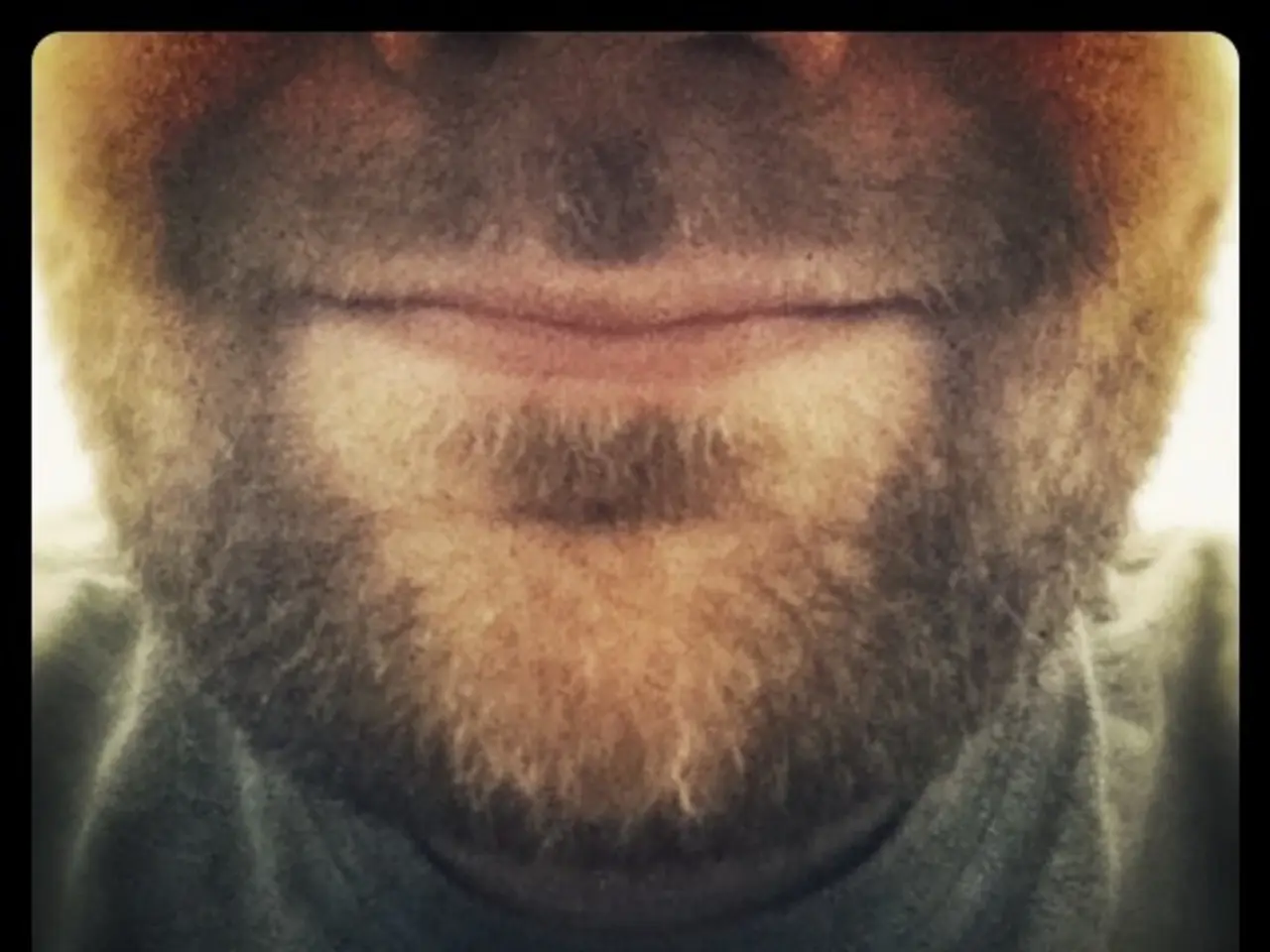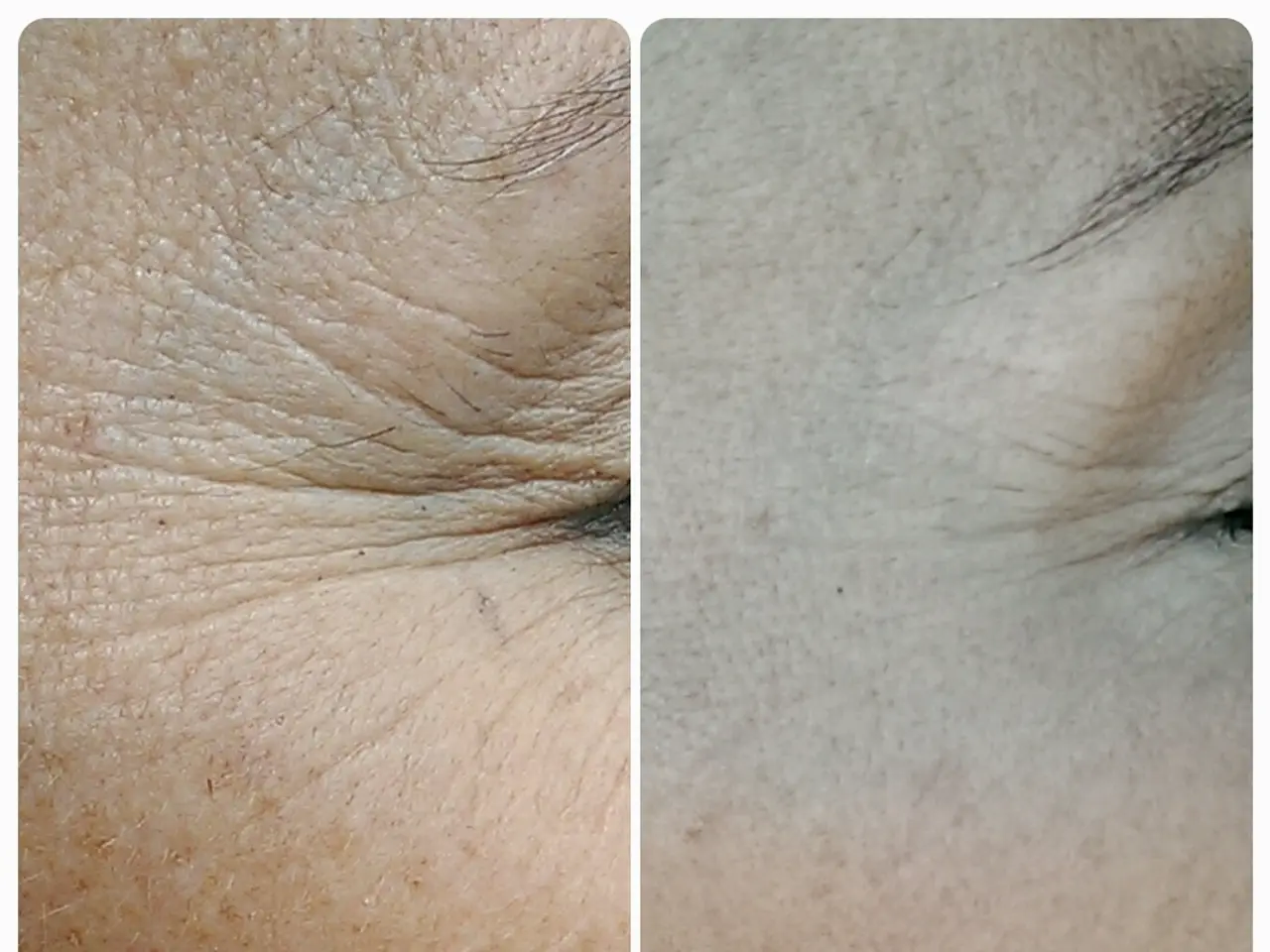Clogged Pores: Root Causes, Remedies, and Strategies for Prevention
Deep blackheads, a common symptom of acne, can be a source of concern for many. These dark lesions, which appear at the surface of the skin due to clogged pores with a mixture of sebum and dead skin cells, are not limited to the face but can also appear on other parts of the body such as the neck, back, chest, shoulders, and arms.
Fortunately, there are various treatments available to help manage and eliminate deep blackheads. Here's a rundown of some proven methods:
### Topical Treatments
Topical treatments are often the first line of defense against deep blackheads. Benzoyl peroxide, with its antibacterial and exfoliating properties, is a popular choice. It helps reduce the *Cutibacterium acnes* bacteria and prevents clogged pores by promoting the shedding of dead skin cells.
Topical retinoids, derived from Vitamin A, are another effective option. They regulate skin cell turnover and prevent clogged follicles. Options include tretinoin, adapalene, and tazarotene, and they are effective for treating blackheads and whiteheads, although they may cause initial worsening of acne followed by improvement.
Other topical treatments include azelaic acid, salicylic acid, sulfur, and hydrogen peroxide.
### Non-Invasive Procedures
Chemical peels and microdermabrasion are non-invasive procedures that can help reduce the appearance of blackheads. Chemical peels exfoliate the skin and unclog pores, while microdermabrasion removes dead skin cells, improving the appearance of the skin.
### Oral Medications
While not specifically mentioned for deep blackheads, spironolactone has been studied extensively for its effectiveness in treating acne, including reducing sebum production, which can indirectly help manage blackheads.
### Innovative Treatments
Platelet-Rich Plasma (PRP) therapy, primarily used for acne scars, stimulates collagen growth, which can improve skin texture and reduce the appearance of deep lesions and scars. However, it is not specifically targeted at blackheads.
For deep blackheads, a combination of these treatments under the guidance of a dermatologist may provide the best results. Manual extraction of deep blackheads, carried out by a dermatologist with specialized comedone extractor tools, may also be recommended.
It's important to note that attempting comedone extraction at home can lead to infection or scarring. Instead, maintaining good skin hygiene, such as regularly washing the face to reduce the buildup of sebum and dead skin cells in the pores, can help prevent deep blackheads.
Dietary changes, such as reducing dairy consumption and glycemic load, may also help prevent or manage deep blackheads. Stress can worsen acne, and some individuals may find that using stress management techniques helps reduce skin complaints.
If someone is concerned that their blackheads may be negatively affecting their mental health, they may find it helpful to discuss this with a counselor. If a comedone is open at the surface of the skin, it appears as a black lesion because the trapped material becomes oxidized.
For persistent or severe acne, a dermatologist or doctor can prescribe medication to help treat the condition. Remember, it's always best to consult a healthcare professional for personalised advice.
In conclusion, with a variety of treatments available and a focus on good skin hygiene, deep blackheads can be effectively managed and reduced, leading to clearer, healthier skin.
- Aq, the acne causing bacteria, can be targeted with a topical treatment like benzoyl peroxide, which has antibacterial and exfoliating properties, helping to reduce it.
- Ms, a derivative of vitamin A, can be used as a topical retinoid, regulating skin cell turnover and preventing clogged follicles, effective for treating blackheads.
- Asthma, while not directly related, can potentially affect an individual's overall skin health indirectly, as stress can worsen acne in some individuals.
- Skin-care products like hydrogen peroxide, sulfur, or azelaic acid are additional topical treatments that can help manage deep blackheads due to their exfoliating properties.




